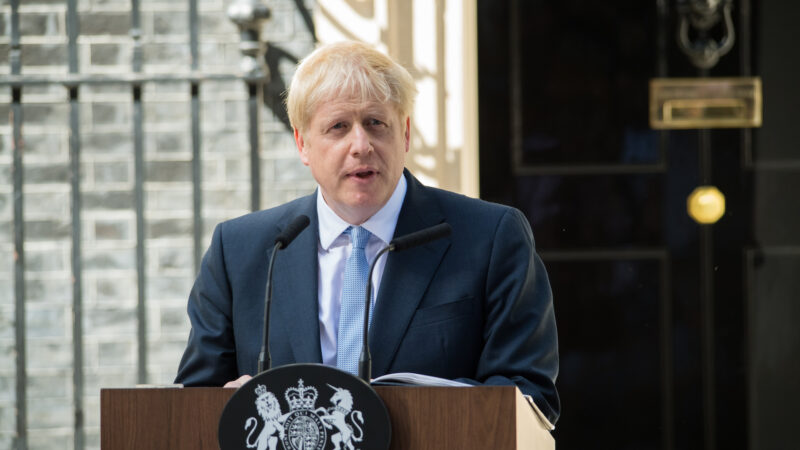
Ministers today unveiled a ten-year ‘vision’ for social care. 28 months after Boris Johnson told the public that he had a “clear plan” to fix the crisis in social care, Gillian Keegan conceded that the new white paper represents only a “first step” and went on to describe the document to parliament as “just a start”. This is hardly what was promised on the steps of Downing Street more than two years ago.
The social care white paper sets out £1bn of funding over the next three years: £300m to integrate housing into local health and care strategies; £150m for technology and digitisation; £500m investment in the adult social care workforce; and a further £70m to help local authorities improve the delivery and standard of care. The Department for Health and Social Care has said how the remainder of the £1.7bn would be allocated will be distributed will be confirmed “in due course”.
The proposals have been widely criticised, including by senior Tory MP and former Health Secretary Jeremy Hunt. The health and social care select committee chair said the plans do nothing to stop “hospital wards continuing to be full of people who should be discharged and older people not getting the care they need because the carers don’t exist”. He described it as “three steps forward and two steps back” and said the spending plans of around £1bn it outlined were “a long way off” the £7bn a year extra that his committee called for by the end of this parliament.
Labour’s Liz Kendall said the proposals fall “woefully short”, arguing: “The reality of their so-called reforms is now clear: a tax hike on working people that won’t deal with the problems in social care now, and won’t even stop them having to sell their homes to pay for their care, as the Prime Minister has repeatedly promised.” She added: “Ministers have utterly failed to deal with the immediate pressures facing social care as we head into one of the most difficult winters on record.”
What are those pressures? Chief among them are the 100,000 staff vacancies. This is not surprising: research last month into the effect of low pay on care staff found that 73% are struggling to afford their day-to-day essentials, including buying food and paying bills. Most home care workers – where there are now more jobs than in residential care – are employed by private companies and 42% are employed on zero-hours contracts. Ministers recently shut down attempts by Labour to close a loophole whereby many in the sector are not paid for their travel between individual care visits. This means around 420,000 are not even being paid the minimum wage according to a 2019 estimate from the Low Pay Commission.
Lots of care workers are understandably leaving the sector. As pointed out by Sally Warren of the King’s Fund, the proposals put forward today contain “little to tackle poor workforce pay and conditions and high vacancy levels”. The white paper pledges new training routes into care, but does not provide any details about these new routes and how they will differ from the current entry points. On the workforce needed, the DHSC has pledged only to provide a “sufficient supply of social workers”.
Because of the shortage, one and a half million hours of home care couldn’t be delivered between August and October alone, and half of all councils report care homes going bust or home care providers handing back contracts. Council leaders in England warned that the waiting list for care assessments and packages rose to 400,000 people last week, of which 40,000 have been waiting more than a year. Association of Directors of Adult Social Services president Stephen Chandler declared on Monday that care services across the country are “rapidly deteriorating” and “red lights are flashing right across our dashboard”.
The health and social care levy, announced earlier this year, will see a 1.25 percentage point rise in National Insurance Contributions. It is a regressive tax rise. Even more controversially, we recently discovered the details of how the government will implement the £86,000 cap on care costs for individuals. It was initially thought that any costs incurred would count towards a new £86,000 limit on care costs, at which point the state would step in, as recommended by a report shelved a decade ago. Amid the Tory sleaze row, however, ministers quietly revealed that the calculation will not include any means-tested help received from the state, making it likely that only the better-off will reach the cap.
After making us wait more than two years, for a plan he claimed to already have worked out, Johnson has put forward proposals that are both insufficient and unfair. Millions will pay more tax, levied in a regressive way, “not to improve their family’s care or stop their own life’s savings being wiped out, but to protect the homes of the wealthiest”, in the words of Labour. After waiting for such a long time, the best ministers could present us with is a ‘first step’. As Liz Kendall concluded: “This isn’t fixing the crisis in social care let alone real social care reform. It is unfair, it’s wrong, and the government must think again.”




More from LabourList
‘Labour is being badly misled on housing’
Reeves bets on patience over populism
‘Energy efficiency changes must work for older private renters’